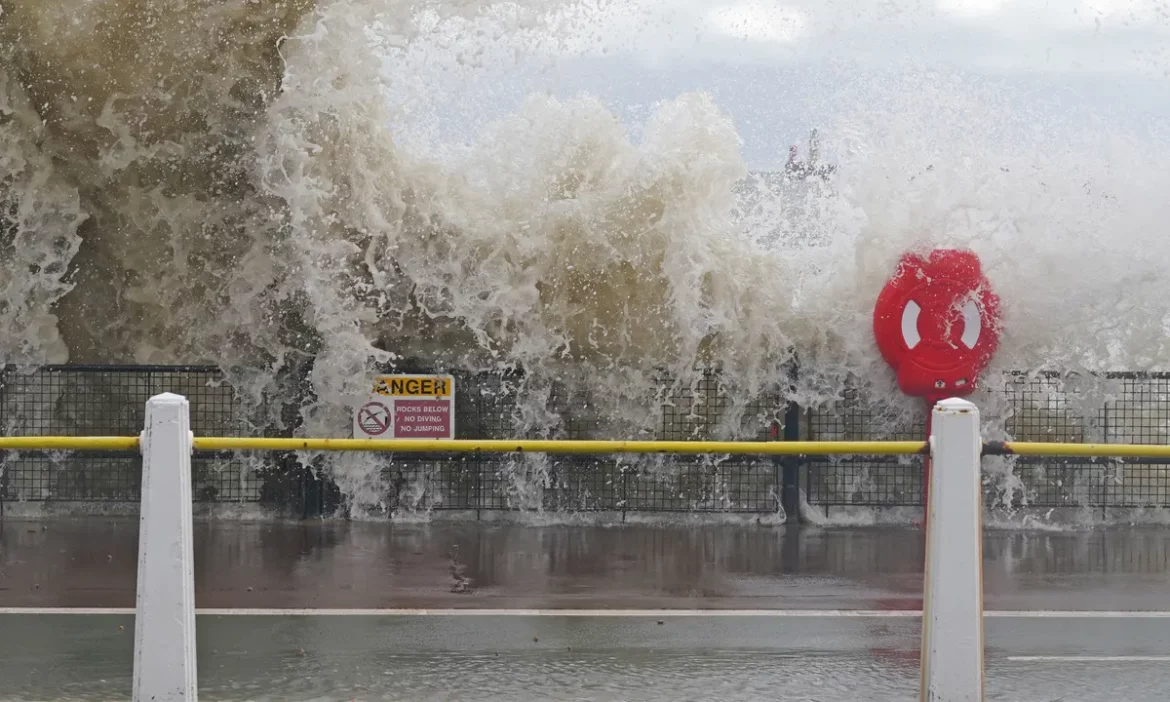After Storm Ciarán swept the country, scientists have warned that the UK is ill-prepared for the disaster future storms could wreak.
Experts believe a warming atmosphere caused by emissions from burning fossil fuels will make storms more frequent and severe in the UK. This autumn, storms have caused thousands of homes in the UK to flood, and last week almost 150,000 households were left without power.
According to reports, Schools in Jersey, Guernsey and Alderney had to shut due to the bad weather and across the British Isles roofs were blown off homes, some train lines ground to a halt and the Port of Dover was backed up with queues.
In Surrey, thousands were left without water after the storm disrupted Thames Water’s treatment works and scientists fear the government is not putting enough effort into flood resilience, which could cost people their homes, livelihoods and even their lives.
Trevor Hoey, who is a professor of river science at Brunel University London and director of the Centre for Flood Risk and Resilience, said that he is concerned that with all of the other priorities that governments at different levels have to deal with, this may not get the attention it perhaps deserves.
Read also: Report finds Canada’s emissions cut plan insufficient to meet targets
“The risk is that we continue to be somewhat reactive. We wait until there has been a flood event and then we try to stop that event from occurring again in the same place in the future, “he said. “We need to think at slightly larger scale about how we can mitigate and also help people to adapt to climate change at a national scale.”
Also reacting, Prof Jim Hall, from the Oxford University Centre for the Environment said that regular checks of flood protections needed to be put in place so the response was proactive rather than reactive.
He said: “The National Infrastructure Commission has said that government should set a long-term measurable target to reduce the number of properties likely to be flooded by rivers or the sea. But government action cannot eliminate the risks from flooding, so regular stress tests and exercises should be conducted to ensure that we are able to cope with the extreme events that are expected in the future.”
Story was adapted from the Guardian.
